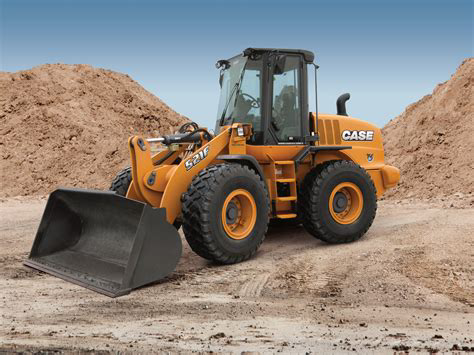A wheel loader is a heavy equipment machine widely used in construction and mining industries for handling materials such as dirt, gravel, and other bulk materials. It's characterized by its large front-mounted bucket and robust design, making it a powerful tool for various applications.
Key Features of Wheel Loaders:
1. Bucket Capacity:Wheel loaders come in a range of sizes, each with a specific bucket capacity. This capacity determines the amount of material the loader can handle in one scoop.
2. Powerful Engine: Wheel loaders are equipped with powerful engines that provide the necessary torque and horsepower to handle heavy loads and navigate challenging terrains.
3. Articulated Steering:Many wheel loaders feature articulated steering, allowing for increased maneuverability. This design is particularly useful in confined spaces and when working around obstacles.
4. Versatility through Attachments:Wheel loaders can be fitted with various attachments, including forks, grapples, and buckets with different designs. This versatility makes them adaptable to a wide range of tasks.
5. Hydraulic Systems:Advanced hydraulic systems enable smooth and precise control of the loader's movements, facilitating efficient material handling.
Common Applications:
1. Loading and Transporting: The primary function of a wheel loader is to load materials into trucks for transportation. This is crucial in construction, mining, and quarry operations.
2. Stockpiling:Wheel loaders are used to create and manage stockpiles of materials, ensuring organized and efficient storage on job sites.
3. Excavation: In addition to loading, wheel loaders can be used for excavation tasks, especially in situations where a more compact machine is required compared to larger excavators.
4. Snow Removal: Wheel loaders equipped with snow blades or snow blowers are employed for clearing snow from roads, parking lots, and other surfaces.
5. Landscaping:Wheel loaders play a role in landscaping projects, helping with tasks such as grading, spreading soil, and transporting landscaping materials.
Maintenance and Safety:
- Regular maintenance of the engine, hydraulics, and other crucial components is essential to ensure optimal performance.
- Operators should undergo proper training to operate wheel loaders safely, considering their size and power.
- Inspections for wear and tear, especially on bucket edges and hydraulic hoses, should be conducted regularly.
Wheel loaders are indispensable in heavy-duty construction and industrial settings, contributing to increased efficiency and productivity in material handling operations. Their versatility and power make them a staple on many job sites worldwide.






Good
ReplyDeleteGood
ReplyDeleteNice
ReplyDeleteNice
ReplyDelete